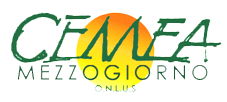Language Version |
Oriolo Romano (VT) February 27th – March 4th, 2013
Training Course Hosting Organisation

The ED.HO.C coordinator and hosting organisation of the Training Course is CEMEA del Lazio.
The CEMEA – Training Centres for Active Education Methods – were born in France in 1936 with the aim of developing democratic and participate behaviours. After the war CEMEA spread all over the world. Today the CEMEA movement is active in 29 European, African and American countries, co-ordinated by the International Federation with its headquarters in Paris, which since 1964 has the B status at the UNESCO and since 1972 a consultative status at the Council of Europe and at the European Youth Forum in Brussels. In Italy, the CEMEA movement was born in 1950 and gathered in the Italian Federation of CEMEA in 1974. CEMEA refers to active education: a kind of education that tends to free the human being, offering situations in which anyone – child, youngster, adult – can become conscious of the world around him, contributing to its evolution, in a perspective of individual and social development. The CEMEA movement is characterised by: lay, independent, non confessional social commitment; international experience; «active education» methodology; open discussion around ideas and experiences.
The CEMEA promote an educative approach based on several guiding principles which determinate its action:
- Every human being can develop and improve himself during his lifelong. He has the aspiration and the possibility
- There is just one education: addressed to all and in every moment
- The educational action is done in direct and constant contact with the reality
- Every human being had the right to have our respect and consideration, without any kind of distinction concerning age, origin, social class, sex…
- The context has a fundamental importance on the development of a person
CEMEA del Lazio is placed in Rome and its main activities are:
- training stages for educators, teachers, animators;
- artistic and cultural activities within social programs;
- holidays educational centres for children;
- workshops outside compulsory education;
- publishing activities (bulletins, books, reviews…)
Training Course Aim

The training course will involve 1 coordinator/trainer and 1 educator from each partner organisation: CEMEA del Lazio (ITALY), Associação Juvenil de Peniche (PORTUGAL), Keric (SLOVAKIA), Telecentro de Ayerbe (SPAIN), Chance for Life (ROMANIA), and will coincide with the annual training activity organized by Cemea del Lazio for all the personnel working in the spring and summer educational holiday centres.
The training course, developed following the active methodology proposed by Cemea’s movement, will explore all the elements necessary for the preparation of any professional involved in Educational Holiday Center residential activity, opening the first methodological comparison and confrontation between ED.HO.C. partners. It will assure a common language and a common reference framework for the partners, for the preparation and the training of professional profiles like educator, coordinator and trainer in the field of children education and in particularly inside an educational holiday centre.This common framework is absolutely needed to be able, during the mobilities, to further develop the research on the base of the themes associated to each of the planned study visits. You can find the calendar of the mobilities and more information about the study visits’ themes to the following link: https://www.cemea.eu/edhoc-educational-holiday-centre-en/
Training Course Methodology
 The active methodology is based on learning by doing, experimenting situations or activities meant to encourage individual and group reflection, and the reflection of the individual in/within the group. In a process of human growth towards the increasing self-awareness, the active methodology allows the participants to learn about themselves. A process based on the interaction with the group through a continuous input and feedback exchange, The participant is thus not an ‘empty box’ using the training to get full of contents, but s/he assumes an active role for him/herself and for the other people involved. Every proposed activity (simulations, games, getting to know each other games, sharing in small groups…) mainly aims at building, together with the participants, an experience that can become an idea, a metaphorical bridge towards new activities and future experiences, keeping on growing and exploring. The active methodology refers to the development of the human being, as a process without a specific age span but as continue evolution, based on lifelong learning.
The active methodology is based on learning by doing, experimenting situations or activities meant to encourage individual and group reflection, and the reflection of the individual in/within the group. In a process of human growth towards the increasing self-awareness, the active methodology allows the participants to learn about themselves. A process based on the interaction with the group through a continuous input and feedback exchange, The participant is thus not an ‘empty box’ using the training to get full of contents, but s/he assumes an active role for him/herself and for the other people involved. Every proposed activity (simulations, games, getting to know each other games, sharing in small groups…) mainly aims at building, together with the participants, an experience that can become an idea, a metaphorical bridge towards new activities and future experiences, keeping on growing and exploring. The active methodology refers to the development of the human being, as a process without a specific age span but as continue evolution, based on lifelong learning.
Training Course Language
 The training course language will be officially English, “standard culturally oriented” English! Please consider that nobody is a professional interpreter and the language is only one of the possible tools for communication. The participants will be requested to be opened and flexible about the communication in the group, i.e. supporting each other with brief translations in other known languages and adopting a proactive approach, aimed to support the process of mutual understanding. The active methodology will reduce the need of long instructions or explanations and the activities proposed will allow participants to use personal resources other than the language.
The training course language will be officially English, “standard culturally oriented” English! Please consider that nobody is a professional interpreter and the language is only one of the possible tools for communication. The participants will be requested to be opened and flexible about the communication in the group, i.e. supporting each other with brief translations in other known languages and adopting a proactive approach, aimed to support the process of mutual understanding. The active methodology will reduce the need of long instructions or explanations and the activities proposed will allow participants to use personal resources other than the language.
Training Course Participants
 The Training Course involves a group of Italian participants and the EDHOC participants, one coordinator and one educator from each partner organization. The group of Italian participants, who have followed a previous first introductive course on working as operators in educational holiday centres, will continue their formative path, joining the EDHOC participants in the international training course, multiplying the contributions and exchanges, thus bringing added value to the whole experience.
The Training Course involves a group of Italian participants and the EDHOC participants, one coordinator and one educator from each partner organization. The group of Italian participants, who have followed a previous first introductive course on working as operators in educational holiday centres, will continue their formative path, joining the EDHOC participants in the international training course, multiplying the contributions and exchanges, thus bringing added value to the whole experience.
|
Associação Juvenil de Peniche, PORTUGAL Vitalina Santana |
Telecentro de Ayerbe, SPAIN Pablo Orleans |
|
Keric, SLOVAKIA Elena Badlíková |
Chance for Life, ROMANIA Iuliana Paraschivescu |
Training Course Content

The participation to the entire training course is requested.
For some activities and the house duties each participant will be included small international and multilingual target groups. Sometimes the subgroups will be chosen by the participants, other times the working groups will be permanent for the activities in rotation.
Participants are invited to adopt a listening approach, avoiding judgments, assuring a friendly and trustfull atmosphere. They are welcomed to experiment and to be open to the training course challenges, ready to discover and live new situations. Realizing a continuous research on themselves, on the way of approaching other people, the participants will improve their own competences, going deeper on several levels, both personally and professionally. The TC fosters participants’ complete involvement, having the intellectual aspects exercised at the same measure as the emotional, social and operational ones.
The TC is a tool in itself. The participants will experiment activities and group dinamics intended to be further on realized with the children during the educational holiday centres.Training paths like manual workshops (art and crafts workshops), body expression and non verbal communication, observation and group leading, dramatic games, popular daces, autobiography and story tellers, are fundamental elements to become active parts in the field of children education.
The TC will last 5 days and it will be residential, in this way trainers and educators can conciliate training moments and their daily job, allowing them to keep a learning behavior approach, not just at work, but also throughout all their life.
The programme of the TC described below is a draft proposal that the trainers may re-elaborate and adapt, according to the groups’ needs and daily evolutions of the TC experience.

Where we will stay…

 Oriolo Romano is a city of 3500 inhabitants in the countryside, 54km far from Rome and 39km far from Viterbo. The city of Oriolo expands on a hilly area full of tall trees, along Via Clodia, an ancient road that connects the North of the Roman countryside with the antique Etruscan region of Tuscania. The Etruscan origin of the inhabitants of Oriolo Romano can be found, also after many centuries, in some dialect, culinary and folkloristic traditions.
Oriolo Romano is a city of 3500 inhabitants in the countryside, 54km far from Rome and 39km far from Viterbo. The city of Oriolo expands on a hilly area full of tall trees, along Via Clodia, an ancient road that connects the North of the Roman countryside with the antique Etruscan region of Tuscania. The Etruscan origin of the inhabitants of Oriolo Romano can be found, also after many centuries, in some dialect, culinary and folkloristic traditions.
You will be hosted in Casa Cemea di Oriolo Romano, a house that can host around 40 people, surrounded by 2 hectares garden with trees. There are common rooms with bunk beds (from 4 to 8 people), 8 WCs and 5 showers in co-use, outside the rooms. Please bring with you: bath towels, soap, shampoo, slippers. CEMEA del Lazio will provide covers and sheets for the bed. The structure has a kitchen and a space dedicated for having meals. We kindly ask you to inform us about any special needs regarding food, allergies etc., in order to arrange an agreement with the cooker. Being part of the whole experience of the training course, the living together involves participants in collective activities including house duties, asking for their contribution for: setting and clearing the table for meals, drying the dishes and serving the meals. There will be a work space dedicated to the activities of the Training Course. You will need to wear comfortable clothes and gym shoes. Please bring with you paper notebooks and pens for taking notes.

Arrivals & Departures
CEMEA del Lazio team will welcome you and accompany you by minivan to the CEMEA Oriolo Romano House. More specific information about the arrival and departures timetable and meeting points will be send to you by email individually.












